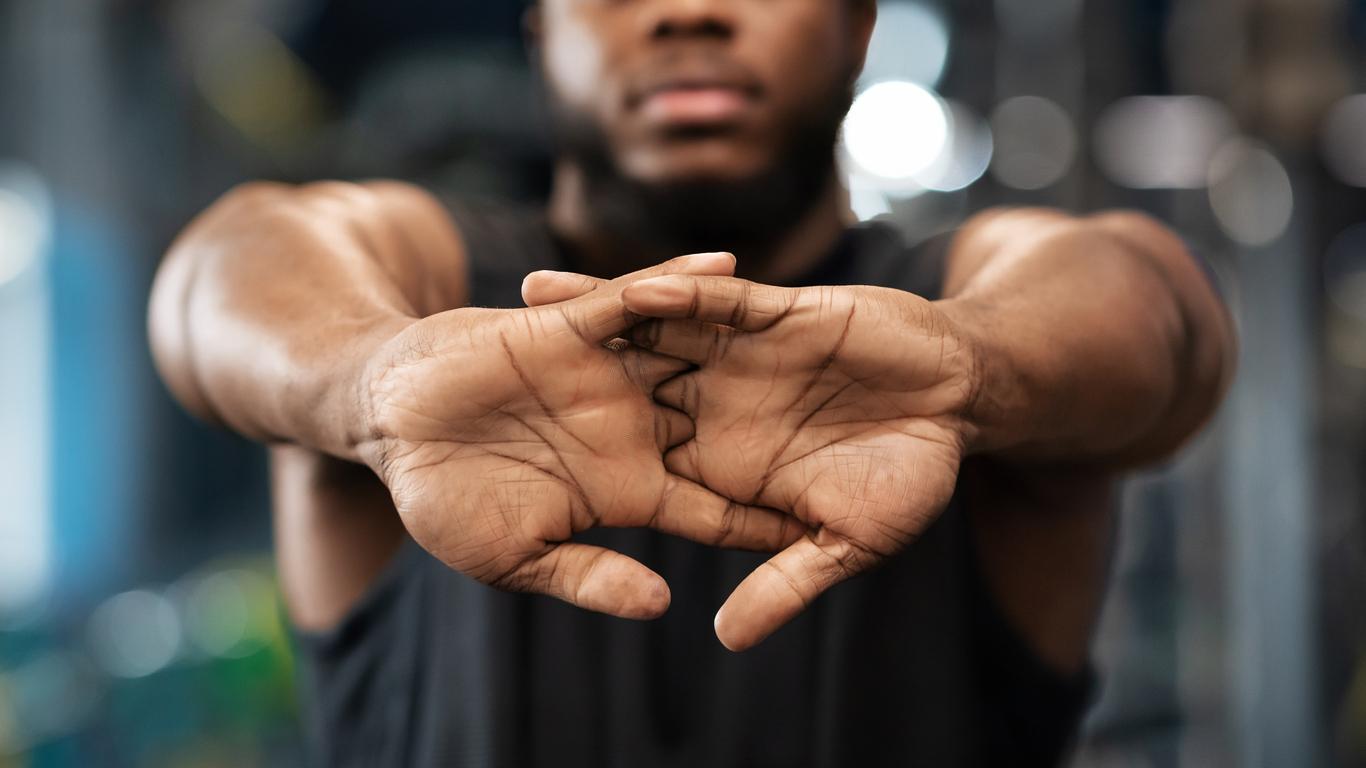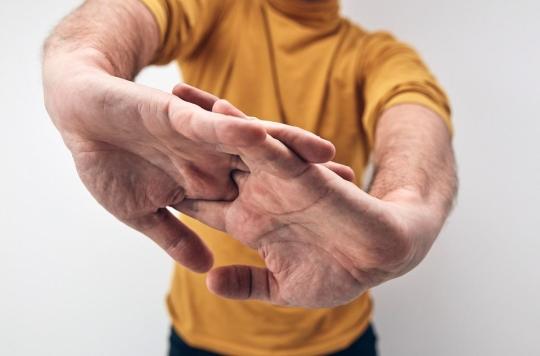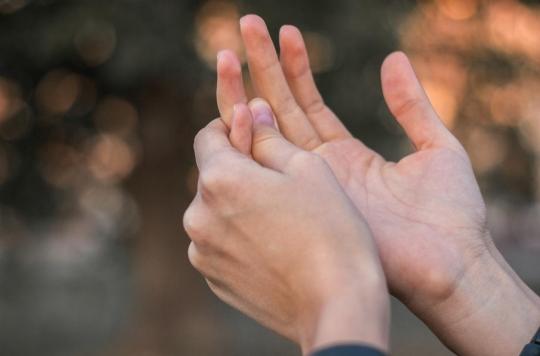According to a recent study, finger crackles are caused by the bursting of microscopic gas bubbles in the fluid in the joints. Is it really bad to get your fingers cracked? Is there a risk of premature arthritis as some people argue? We tell you everything.

The act of cracking his fingers has so far been shrouded in an aura of mystery. Where does the noise you hear when you pull on your knuckles come from? Is it bad for the joints as some people claim? Is there a risk of premature arthritis from cracking your fingers?
Scientists have finally solved the mystery. According to a study published on March 28 in the journal Scientific Reports, conducted by researchers from the École Polytechnique de Palaiseau, in Essonne, and Stanford University in California, crackles are caused by the bursting of micro-bubbles in the fluid in the joints.
A mathematical formula
A mathematical formula developed by Vineeth Chandran Suja, a former Polytechnic student, and his teacher, Dr. Abdul Barakat, solved the mystery. Together, they developed a series of equations that explains the “crack” that accompanies the release of bubbles in the synovial fluid, which lubricates the joints of the hand.
“The first equation describes the pressure changes inside our joint when we crack it,” Vineeth Chandran Suja explained to BBC News. “The second equation is a well-known equation that describes the changes in the size of bubbles in response to changes in pressure. And the third that we wrote was to couple the change in the size of the bubbles to those that produce these sounds,” continues the student, who is now in postgraduate studies at Stanford University.
“When we crack our fingers, we separate our joints. And when we do that, the pressure drops and bubbles appear in the synovial fluid,” explains Vineeth Chandran Suja. “During the process of joint cracking, there are pressure variations which cause the bubble size to fluctuate extremely rapidly, leading to a sound that we associate with joint cracking.”
The origin of the noise
This is not the first time that scientists have sought to understand where the noise made by joints when they are cracked comes from. A hypothesis similar to that of Vineeth Chandran Suja and Dr Abdul Barakat had even been formulated in the early 1970s, before being questioned by several studies. The novelty here is that the mathematical formula shows “that the bursting of only one of these bubbles is sufficient to produce the noise”, explains to AFP Dr. Abdul Bakarat. The work of the two researchers also calls into question the conclusion of a 2015 study, which argued that the cracking came from the formation of bubbles rather than their bursting. On the contrary, the mathematical formula they developed affirms that it is indeed the bursting of microscopic bubbles that produces sound. Mystery solved.
“Stop it, you’re going to have arthritis!”
Another question arises: is it dangerous to crack your joints? Is there a risk of premature arthritis? A study conducted by allergist Donald Unger – born in 1920 – who only cracked the fingers of his left hand for more than 60 years shows that this is a preconceived idea. Donald Unger was the first to take an interest in the issue. As he explained in 1998 in the specialist journal Arthritis and Rheumatism, his mother, his aunts and his mother-in-law warned him successively that he risked developing an arthritis because of this tic. He therefore chose to carry out the experiment on himself.
Donald Unger explains in his publication: “For fifty years, the author cracked the joints of the fingers of his left hand at least twice a day, not touching those of his right hand so that it served as a control. . As a result, the joints of the left hand cracked at least 36,500 times, while those of the right only rarely and spontaneously cracked. At the end of the fifty years, his hands were compared to judge. whether or not arthritis is present. ” Result: his two hands were similar. No trace of arthritis. This study won him the 2009 IgNobel Prize in Medicine and paved the way for further research. In 2011, a new study was carried out on the subject. Published in the Journal of American Board of Family Medicine, she showed that in a group of more than 200 elderly people, those who regularly cracked their joints did not have more arthritis than the others.
A loss of strength in the hand?
A study published in 1990 in the journal Annals of the Rheumatic diseases, nonetheless suggested that having your fingers cracked regularly could ultimately have consequences on the functioning of the hand such as reducing its strength.
.

















